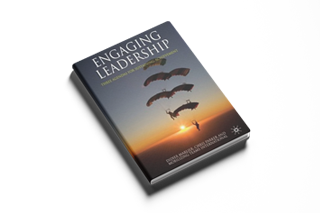In an excellent “post” (article) on his blog[1], Seth Godin creates a distinction between the two cultures that internet has enabled: one made of people whom, we would say, work following the GRAVITAS principles and go deep in their thinking, seeking to be real leaders in the Open Economy and another, which he calls “clickers culture”, a sort of fast food and superficial consumption of everything that flies on the net. Therefore his question:
“Should I write blog posts that increase my traffic or that help change the way (a few) people think?”
This as well as several feedbacks asking for a bit of time to digest all the recent articles on the “Open Economy”, got me to decide that I will “slow down” and let you time to read and catch up. So my next post will be a simple attempt to summarize all the articles written these last weeks on the “Open Economy” as well as give you time to start engaging more, co-creating, commenting, sharing opinions, although I am aware that this blog is rather unusual given the amount of CEO’s, Board members, partners and top execs amongst you and I do understand the reluctance to expose oneself personally.
A good way to start summarizing this reflection on the “Open Economy” is to share the “Game Changers” Gerd Leonhard recently exposed to a group of advanced thinking Brazilian (and Argentinean!) CEO’s with the Fundação Dom Cabral.
- “Open is not free”, the new monetization challenge: Some people seem to believe naively or mistakenly, that tomorrow will be a sort of Eden where everything will go for free (except what they sell of course). Nothing could be more wrong. Open is not free. Some things that used to be paying before now go for free but the phenomenon is more of a transfer of value and the challenge lays in how to monetize my skills, talent, service, product, provice or serduct…
- “Open vs closed”: Open will not be the new fashion or flavor of the month. Google may be seen as a symbol of Openness; It is the firm which makes available the most lines of codes on the net. On the other hand, Apple continues to be a symbol of Closed. Both are extremely successful at the moment. One world (Open or Closed) will not instantaneously replace the other, which will add to the complexity of leading in the Open Economy.
- “From Egosystems to Ecosystems” or the need for systemic thinking: The Banco Santander Brasil has adopted a ban in granting loans to companies responsible for deforestation in the Amazon. This measure was taken in coherence with the values of the bank and its commitment to sustainability. However it realized that the “culprits” were also responsible for the well being of large communities in remote areas, through the first aid centers and schools they sponsored. Refusing them loans would endanger the survival of whole communities. So the bank, reversed its stance to “We will help you become sustainable organizations so that we may grant you loans again in the future”. The Ecosystem notion advocated by Gerd is linked to the interdependency value emerging from the Open Economy.
- “From consumers to followers”, or finding the “resonating focus” to emotionally engage our customers (and employees): our previous post already mentions this (Seth Godin and “Tribal Leadership”). Do not believe that customers are hooked forever. As Facebook painfully learned, a simple faux pas and they desert you in masses.
- “Friction is fiction”, or the challenges to the control attitude: Those basing their bargaining power on control (IP protection as an excuse to block competition and progress) will be up for disappointment. The image frequently used here is the one of a river, which grows bigger by the day. Throwing a huge rock to stop it, may succeed for a while until the water finds alternative ways of flowing. The Catholic Church learned this at it expenses during Guttenberg days: better understand the new technology and use it in an ethical way, than try to stop it. The same day the French Parliament finally voted its “three strikes” law (which would force access providers to switch of people guilty of illegal downloading), a list with nothing less than eight ways to legally go around this law was already circulating on the net…
- “From mass distribution to fragmentation”: Paralleling Seth Godin’s intuition that the days of mass production/mass advertising are over, Gerd warns us that intrusive advertising days are counted. We will need to carefully move from a “Push” paradigm to a Pull one through converting our clients and customers into tribes of aficionados. I could not believe the patience with which my son awaited his Apple computer (specially after having had to use one myself for 3 weeks but I guess I belong to the “other” Tribe;), for three months beyond the officially communicated delivery date…
- “The end of Passivity”, from desktop to mobile users: Mobile users are part of the “Tribe phenomenon” described by Godin. They have intents, opinions and may mobilize very quickly in favor or against something. This “Mobile Society” responds to different rules and principles than its predecessors.
In São-Paulo (starting to design our “Disruption Workshop”), Porto Alegre and Salvador de Bahia this week. Have a great week all,
Didier
[1] http://sethgodin.typepad.com/seths_blog/2010/03/driveby-culture-and-the-endless-search-for-wow.html



excellent summary, Didier. For your readers, the slideshow on the Open Network Economy can be found here: http://gerd.fm/d1knuF Keep up the good work! Gerd